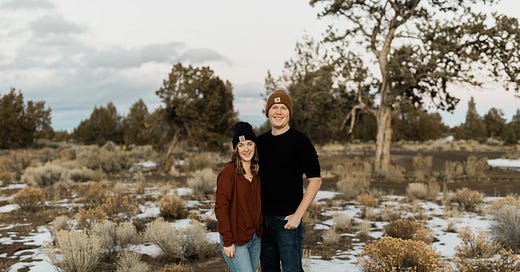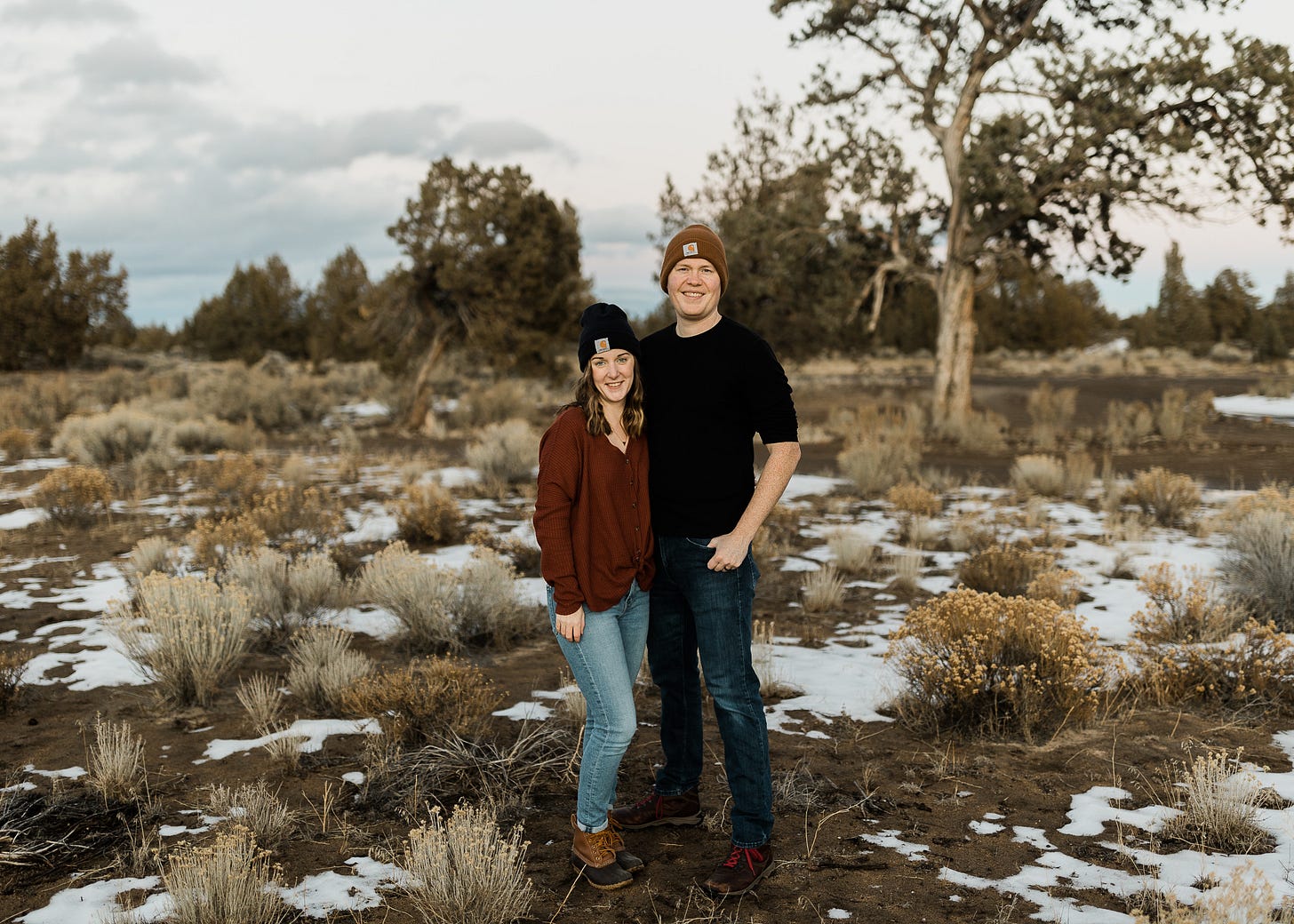Mindset Mastery is a weekly newsletter about the psychology of self-employment from Jenni Gritters. If you’d like to support my work, become a paid subscriber for $5/ month! Paid subscribers receive monthly business planning exercises, along with other perks like access to newsletters on sensitive topics.
If you’re tired of just surviving and want to move your business into a more intentional, less chaotic mode this fall, my new business coaching membership program is for you! It’s called SUSTAIN and we kick off with our first group call tomorrow, September 12th. We’re focusing on client stability first: How to move to a retainer/ rotating stability model, with scripts and support. Join us?
Curious about how to build a profitable writing business? Internetly is a newsletter for writers, creatives, and freelancers of all strides. Written by Alice, every edition will teach you how to hone your written craft and expand your creativity – so you can be a profitable and free business owner.
Meet Sean, my husband! He’s now my business partner in addition to being my life partner.
Candidly, we’re still very much in the chaos of the transition into running a business together, which is why I haven’t shared exactly what it looks like. (We don’t know yet!) Here’s what we do know: In large part, our business — which now functions as the Riverwoods Media Group, LLC — still looks very much the same as the business I ran alone last year. We’re still doing a lot of writing work, mostly product reviews and healthcare-focused feature stories. The difference is that Sean is running the logistics and operations of the business.
Meanwhile, I’ve been freed up to write, create more content (like this newsletter!) and build cool coaching programs for self-employed creatives. (Have you checked out SUSTAIN yet? I think you’ll love it!) I’ve been thinking about these programs for a long time but I never had the bandwidth to set them up; now I do.
Importantly, Sean is also much more available to share the load of running our house and caring for our children (who are 1 and 3.5). We’re both working between 20 and 30 hours each week; it still feels like a wild dream come true, even though the challenges still exist, too.
This week, I invited Sean to the newsletter to tell you about what it’s been like for him to push through fear, time and time again, over the past few months. I’ve watched him encounter things he’s never had to do before: manage his own schedule while working from home, leave a career path (nursing) that he thought he’d do forever, set up an entire financial infrastructure for our S-Corp, register the business with the state of Oregon, run payroll, and so much more.
Take it away, Sean!
When I first started working for our business back in May, I had a really hard time managing my emotions. I would feel myself panicking randomly throughout the day, especially when I thought about the reality of the risks I was taking: I left my steady career in a “reliable” industry. I left what most people would consider to be a safe career.
I left that security because I realized that the “safety” was costing too much in return. I had no emotional bandwidth remaining to be with my wife and kids at the end of each day; I used every drop of it caring for people during the worst days of their lives. Granted, we made this two-career system (Jenni running her own business, and me working at the hospital) work for a long time. Even when we had our first kid, it still worked. But after having a second kid, and really seeing the toll my work was taking on my family, something had to give. With the emotion pulled out of the picture and the cruel logic laid bare, this was the most rational choice: Walking away from my own career path.
So often, in the months following quitting my job, I would plunge into fear: Fear that I’m not good enough to help Jenni with her business; fear that someone will “out me” as incompetent; fear that this choice I’ve made will negatively impact my wife and kids. Naming an underlying emotion doesn’t help with the nausea that surrounds it, but I’ve learned that there is something that makes the fear go away: Doing the thing anyway.
Setting up our business’ operational framework has been one of the most intimidating experiences of my life — and I’ve seen some crazy things! I was trained as an ICU nurse where I ran codes and watched surgeries crash and burn. I’ve seen people die in front of me. But this was different: I didn’t go to school for this. There was no instruction. It was purely on-the-job training where I played the role of both the student and the teacher. And there wasn’t even a structure put into place, decided by someone else. Now, I was in charge of designing and running that system all by myself.
When I first started working as a nurse, I had this sinking, gut-wrenched feeling of knowing that people’s lives depended on me. Being off my game wasn’t an option; it could end up with someone losing their mom or their grandpa under my watch. When I started working for our company, I thought about this feeling all the time. And I kept thinking: “I’ve done this before. Under terrible conditions, I still held my head up and did my job. Now, why can’t I do that here?”
It dawned on me that the situation I’m in now has considerably lower stakes than what I left behind. If I fail now, we’ll have to find a new solution. When I failed before, someone died. And that was another thing I was missing: perspective. The stakes are different now. I’m not in charge of people’s lives; instead, I’m helping Jenni help people figure out what they want to do with their lives. That is such a burden lifted from my shoulders — I can barely put it into words. It means that I can go about my business with so much less intensity. I don’t have to invest so much emotional bandwidth into my profession. At the end of the day, I have so much more energy for my family, my friends, and for me.
I tend to have a pretty active internal dialogue; Jenni will tell you I talk to myself all the time. This internal dialogue started asking scary questions that I just didn’t have answers to, especially in the months after I left my job: “What am I doing here? How do I do all these things I have to do? Why is anyone allowing this?” That voice has gotten quieter but it’s still there most days.
Jenni once told me that she has a voice in her head that says the same things. She’s just gotten used to it. This made me realize that I had a choice to make: I could let this imposter syndrome paralyze me or I could just keep working. Sometimes it got the best of me, and I had some really bad days. (I still do.)
But sometimes I was able to push past the scared parts of me and take action anyway. The next month, it got easier; I didn’t feel so defeated by how afraid I was. The next month, the same. In other words, the fear has become such a constant companion that I’ve gotten used to it.
Here’s what I’d tell someone else who’s on the cusp of making a big career move, or choosing self-employment: This will be one of the hardest things you ever choose to do. That doesn’t sound very good, does it? It isn’t supposed to. I’m not going to sugar coat this; that’s not in my nature. But I will also offer you this: The most important word in that sentence is “choose.” Starting, building, and running a small business is all about choice. That’s why I’m still here.
At my old job, I made choices all the time: How much and when to give a certain drug, when and how much supplemental oxygen to give, and which patients required more of my time than others given their acuity. What I didn’t understand was the foundation of thousands of choices required for me to do my job. Someone else was making those choices when I was a nurse. Now, as a business owner, those foundational choices are up to me. Great, right? Yes… and, that’s completely terrifying. To me, this all comes down to your comfort with taking risks. And that’s my second piece of advice: Get used to taking risks all the time.
I never understood that about Jenni’s business. But now that we work together, I have so much respect for what she’s done. She is so used to taking risks all the time: Every single day, week, and month. This is a muscle that needs to flexed and practiced. And, much like the fear, risk is a constant companion that needs to be accepted as a price of entry into this world of entrepreneurship.
If I can leave you with anything it’s this: When you start your own business, you will be afraid. You will have to find it within yourself to push through that fear, so you can make the best choices and take the best risks. It gets easier over time. But you will also probably need to face some pretty nasty demons in yourself along the way. You can choose to let those demons beat you, or you can choose to take the leap and deal with the consequences.
But still, this is something you’ll choose. No one else can do it for you. You’re in charge. And that’s why I’m still in this game. I choose my salary. I choose my vacation days. I choose my benefits. The total number of people that can tell me what to do is exactly one. And, after a whole lot of thought, that makes this whole thing worth it.
-Sean
Curious about Jenni’s background? I’m a writer and business coach based in Central Oregon. I have two small children and I work part-time so I can spend a lot of time with them. Lately, I’ve been obsessed with non-linear business building and teaching people how to build successful businesses that support their human needs first. Check out my coaching offerings here, follow me on Twitter & Instagram, or download my free business plan for creatives!







I loved reading Sean's perspective on running your biz together!
This was so good! Thanks for sharing, Sean.